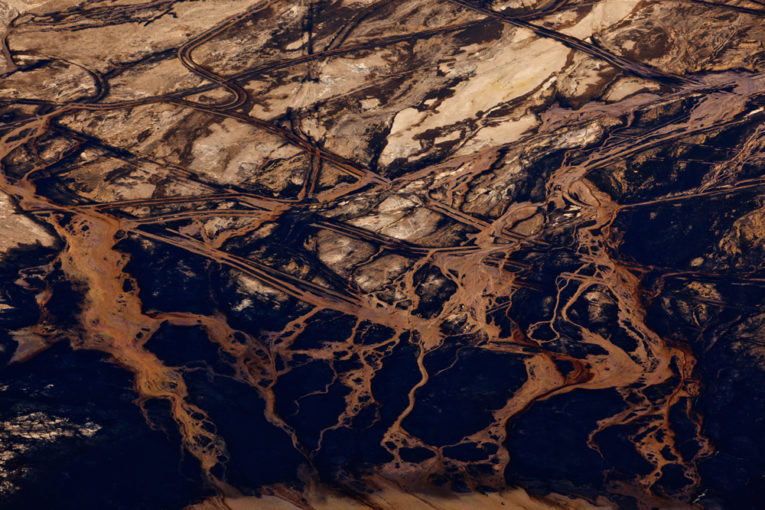
CALGARY – Alberta’s environment minister Jason Nixon is asking his federal counterpart to “expedite” approvals for Teck Resources Ltd.’s Frontier oilsands mega mine, to show Ottawa understands Alberta’s needs.
In a letter sent to federal Environment and Climate Change Minister Jonathan Wilkinson on Dec. 6, seen by the Financial Post, Nixon references economic hardships in Alberta and noted that the project will create 7,000 jobs during construction and contribute $70 billion in federal, provincial and municipal taxes over 41 years of production. The letter also touches on issues of Western alienation and asks Ottawa to consider Alberta’s economic needs.
“Many Albertans are looking for positive signals from the federal government that the national interest includes Alberta,” Nixon wrote in his letter to Wilkinson.
Nixon’s letter comes as Prime Minister Justin Trudeau released Wilkinson’s mandate letter on Friday, which asked the newly minted environment minister to introduce new “greenhouse gas reducing measures to exceed Canada’s 2030 emissions reduction goal and beginning work so that Canada can achieve net-zero emissions by 2050.”
The mandate letter also instructs Wilkinson to advance the government’s goal of 30 per cent zero-emissions vehicle sales by 2030 and 100 per cent zero-emissions vehicle sales by 2040.
While Wilkinson’s office would not comment on the contents of Nixon’s letter, spokesperson Sabrina Kim said in an email “Canadians expect us to oversee fair and thorough environmental assessments.”
The two letters, from Nixon and Trudeau, show the range of pressures facing Wilkinson, who was flying back to Ottawa from the COP25 climate conference in Madrid on Friday, as Ottawa attempts to implement additional emissions-reduction policies and also soothe fears over economic malaise in the West.
“The elements to proceed with this project appear to all be in place. I urge you to move forward with approvals and demonstrate that projects can be advanced in a responsible manner in Canada, for the benefit of all Canadians,” Nixon wrote.
Nixon’s letter lays out eight steps the Alberta government has taken to address recommendations from the arms-length Joint Review Panel, which recommended the federal government approve the oilsands mega-mine on July 26, 2019.
For example, the provincial government said it has implemented plans to manage the Ronald Lake bison herd in the area in the face of various challenges, including diseases from another bison herd in Wood Buffalo National Park, in northeastern Alberta.
Teck’s $20-billion Frontier oilsands project has won the backing of First Nations groups in the area, including the Athabasca Chipewyan First Nation, which has previously opposed oilsands expansion but signed an impact benefit-agreement with the company for Frontier.
However, Athabasca Chipewyan Chief Allan Adam also criticized the provincial government this week for not negotiating with the First Nations on impacts from the Frontier development.
Many Albertans are looking for positive signals from the federal government that the national interest includes Alberta
Jason Nixon, Alberta environment minister
“The Alberta government is killing its own oilsands project by not negotiating with ACFN,” Allan told CBC News.
If built, Frontier would be the largest oilsands mine in Alberta. Company filings show the project is designed to produce 85,000 barrels of oil per day by 2026 before additional phases would bring the project up to 260,000 bpd by 2037. Teck has pledged to build a power cogeneration facility and ensure the oil produced at Frontier would have an emissions intensity half of the average barrel produced in the U.S.
More broadly, the company has pledged to reduce its emissions by 450,000 tones of CO2 per annum by 2030.
In July, the Joint Review Panel — informed by recommendations from the Canadian Environmental Assessment Agency and the Alberta Energy Regulator — recommended the project be approved contingent on 62 different conditions. The two agencies withheld approvals for parts of the project near a local waterway called Big Creek.
At the time the recommendation was issued, then-environment and climate change minister Catherine McKenna’s office said that if the minister determined there were significant adverse environmental impacts, the decision would be referred to the wider Liberal cabinet.
The CEAA and AER joint-review panel report found that “there will be significant adverse project and cumulative effects on certain environmental components and Indigenous communities” so a referral from Wilkinson to the wider Liberal cabinet is a likely outcome.
Under legislated timelines, Wilkinson has until February to make a decision on the Frontier project.
Financial Post
• Email: [email protected] | Twitter: geoffreymorgan
You can read more of the news on source
